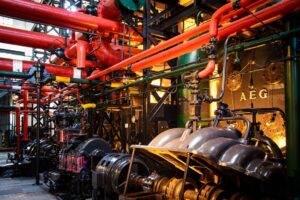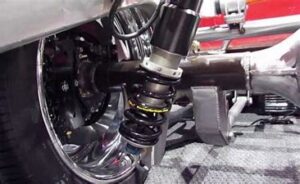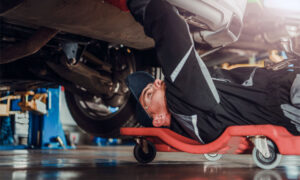Your automobile turns into a reliable travel buddy as you hit the open road. But what happens if this companion begins to make strange popping noises? Any driver can become perplexed and concerned about this situation. It can be unsettling to hear those unexpected cracks, clicks, or pops and to worry about your four-wheeled friend’s safety. Car popping sounds are like cryptic signals from your automobile. They sound like enigmatic whispers coming from under the hood.
Knowing what these noises mean is more important than trying to solve a mechanical puzzle; it’s about protecting the longevity and condition of your beloved vehicle. We’ll solve the puzzle of car popping sounds in this post by examining their definitions, typical causes, and workable fixes. So grab a seat, and join us as we set out to unravel the mystery of car popping sound and arm yourself with the knowledge you need to maintain your car’s smooth operation while you navigate life’s highways.
Table of Contents
Understanding The Car Popping Sound In Detail
Envision yourself travelling along when all of a sudden your car makes a loud popping noise. It seems like a technical glitch that leaves you wondering what’s happening inside. The car uses these popping noises, which are sometimes referred to as clicks, snaps, or pops, to signal that something needs to be fixed. Distress signals are represented by these noises in the automotive symphony. They may come from any number of locations within your car, indicating possible problems that need to be looked into. The suspension system, which is made up of several parts and provides a comfortable ride, is frequently to blame. Pops can be heard when worn-out or loose suspension components rub against one another.
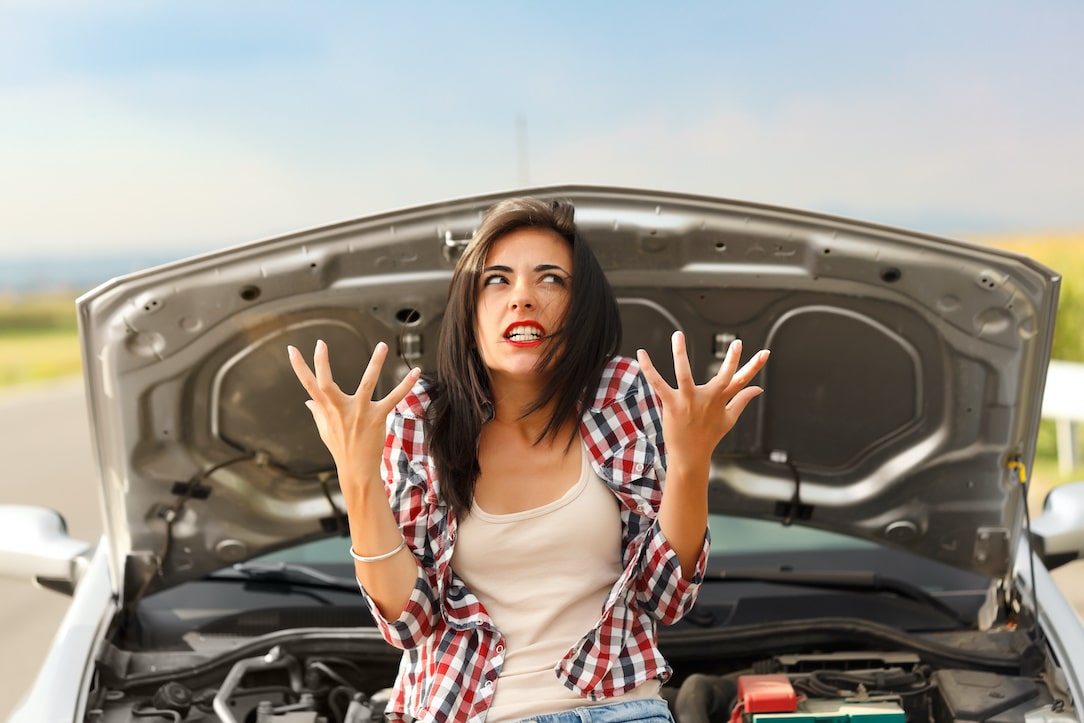
Moreover, when weakened, CV joints which transmit power from the transmission to the wheels may make popping sounds. Additional origins of these noises include the engine, particularly when addressing problems like misfiring or backfiring, and the exhaust system, where heat and vibrations can cause clicks. Deciphering the meaning of these pops is like learning the language of your car. It alerts you to the possibility that anything is wrong and begs you to investigate the mechanics of your beloved car further to make sure it remains in excellent shape for the travels to come. Frequent inspections and prompt care of these indicators can stop possible issues from growing worse, making driving safer and more enjoyable.
What Are The Common Causes Of The Popping Sound In A Car?
Your car popping sound can frequently be attributed to several different complex machinery malfunctions. Deciphering these typical reasons is like cracking a code that protects both your car and your peace of mind.
1. Suspension Problems:
A common cause of popping sounds coming from cars is problems with the suspension system. Over time, parts like control arms, bushings, and ball joints may wear down and cause disconcerting clicks and pops, especially when traversing twists and bumps. These noises can be avoided with routine inspections and prompt replacement of worn-out suspension components.
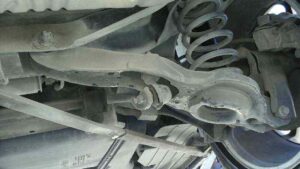
2. Concerns With CV Joints:
Popping noises can also be caused by the Constant Velocity (CV) joints, which are in charge of sending power from the transmission to the wheels. These joints may make characteristic popping sounds when turning or accelerating if they become worn down or lose their lubricant. These problems can be lessened by routine inspections and appropriate maintenance, which includes lubricating CV joints thoroughly.
3. Distress Signals:
The network of pipes and mufflers that make up your car’s exhaust system may leak or have loose parts, which can produce popping sounds. These sounds can occur when exhaust gases suddenly leak out, particularly when accelerating or decelerating. These interruptions can be avoided with prompt repairs and routine exhaust system integrity checks.
4. Issues With Transmission:
Popping sounds can also be produced by transmission problems, such as a worn-out or faulty universal joint. For efficient power transfer between the various drivetrain components, these joints are essential. Frequent maintenance and expert inspections can help prevent these noise disruptions by swiftly addressing transmission issues.
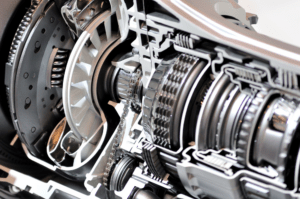
5. Debris Conundrums:
Occasionally, the most straightforward explanation for popping noises in an automobile is that foreign things have gotten into all the crevices and nooks. Popping noises can be produced by objects being stuck in the suspension or between components, such as rocks, dirt, or even road salt. By keeping your car clean and well-maintained, you can keep these intruders at bay.
Thus, keeping an automobile in good working order and preventing popping noises is largely dependent on knowing what produces these noises. Your automobile may run smoothly with routine maintenance, timely repairs, and attention to possible problems. This way, enigmatic pops won’t concern you while you’re driving.
Solutions To Fix The Popping Sound In A Car
Your car is trying to tell you something is wrong when it starts making strange popping noises. The good news is that there are frequently quick fixes for these noises that can keep your car functioning properly. Let’s look at a few simple yet powerful solutions to stop those bothersome pops.
1. Pulling Tight Elastic Elements:
Blowing noises in your car are frequently caused by loose parts. Over time, fasteners such as bolts and nuts may become loose due to normal wear and tear. A straightforward but essential fix is to examine and tighten these components. This covers undercarriage, exhaust, and suspension system parts. Using a wrench and a sharp eye can help you catch these problems early on.
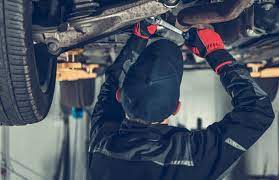
2. Taking Care Of Damaged Parts:
Car parts wear out with time, just like any beloved property. Popping sounds may be caused by worn-out parts like CV joints, ball joints, or bushings. It’s a preventative measure to replace these parts as they start to show indications of deterioration. To detect worn-out parts before they become loud annoyances on the road, routine maintenance inspections can be helpful.
3. Providing Appropriate Lubrication:
An otherwise silent activity can become noisy due to improper lubrication. Those unwanted pops might be produced by friction between metal parts. Significantly lessening these noises can be achieved by routinely inspecting and making sure that moving parts are properly greased. For suggested lubrication intervals, refer to your car’s manual. To ensure smooth operation, use premium lubricants.
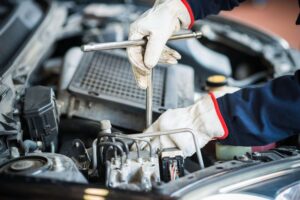
4. Inspections Of The Suspension And Wheel Alignment:
Popping sounds may indicate a problem with the suspension system or a misaligned wheel. Thorough suspension examinations and routine wheel alignments help identify these problems early on. In addition to removing the noise, taking care of alignment or suspension issues guarantees a safer and more enjoyable driving experience.
Therefore, preventative maintenance and prompt attention to any faults are the keys to solving car popping sound. You may make your car’s ride more peaceful by replacing worn-out parts, tightening loose components, making sure it’s properly lubricated, and doing routine inspections. Recall that taking minor precautions now can prevent more serious problems later on and ensure that you have a pleasurable and stress-free driving experience.
Conclusion:
In conclusion, for a trouble-free and seamless driving experience, it is vital to comprehend and resolve car popping sound. These unexplained noises frequently indicate underlying problems that, if ignored, may develop into more serious ones. Your car may remain in excellent shape with routine upkeep, prompt repairs, and a proactive attitude to finding the source of the problem. You can prolong the life of your car and guarantee your safety while driving by keeping an ear out for any unexpected sounds coming from it and acting quickly to stop it. Thus, the next time you hear a pop, take it as a signal to give your car the care it needs.

